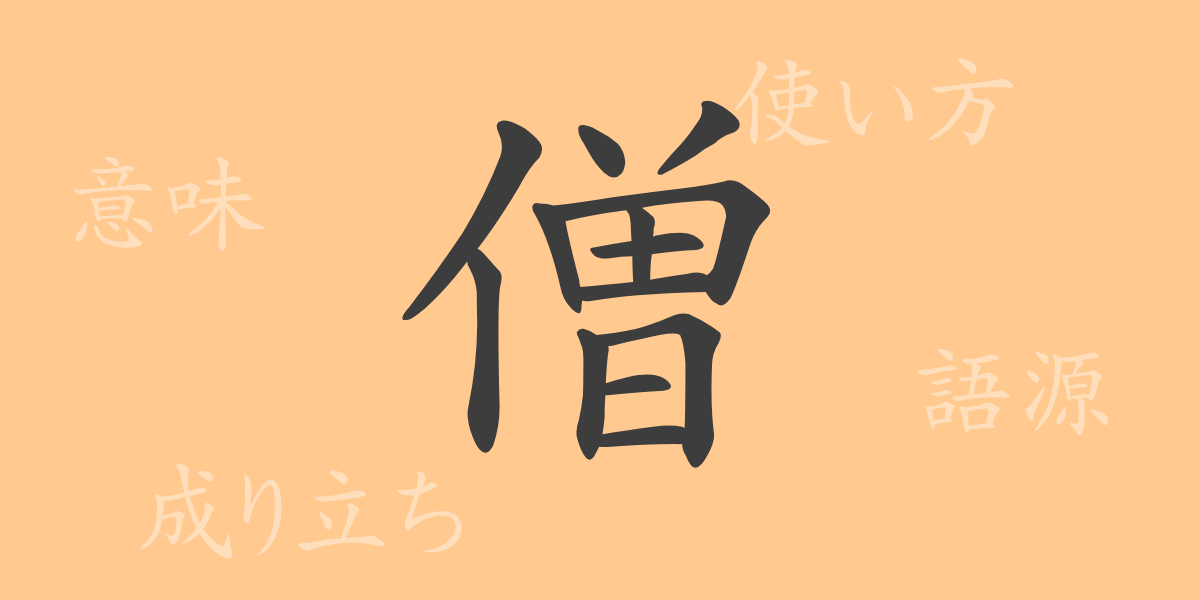The Japanese character ‘僧’ (そう, sō) is deeply rooted in Japanese culture and has evolved throughout history. This single character carries a weight that transcends mere script. This article delves into the world of the Kanji ‘僧’, exploring its origins, contemporary usage, readings, stroke count, and its usage in idioms and phrases. Let’s unravel the full scope of ‘僧’, which carries a fragment of Japanese spirituality.
Origins of 僧 (そう – Sō)
The Kanji ‘僧’ originates from the ancient Indian Sanskrit word ‘संघ’ (Sangha), meaning a group or community. It was introduced to Japan via China, where it became established as a term denoting Buddhist practitioners. The Kanji ‘僧’ features ‘亻’ (にんべん – ninben), representing a person, and ‘曽’, signifying increase or accumulation, symbolizing the gathering of many practitioners.
Meaning and Usage of 僧 (そう – Sō)
In modern Japanese, ‘僧’ primarily refers to a Buddhist monk, a person who has renounced worldly life. It can also metaphorically refer to someone who devotes themselves to a particular cause or leads a secluded life. Commonly, it is used in terms such as ‘僧侶’ (monk) and ‘僧籍’ (monastic registry), associated with Buddhist contexts.
Readings, Stroke Count, and Radical of 僧 (そう – Sō)
The character ‘僧’ holds significant meanings shaped by its form and sound.
- Readings: On’yomi (音読み) ‘ソウ’ (Sō), no Kun’yomi (訓読み) readings are typically associated.
- Stroke Count: ‘僧’ is composed of 13 strokes.
- Radical: The radical is ‘人偏’ (にんべん – ninben), related to people.
Phrases and Idioms Using 僧 (そう – Sō) and Their Meanings
Idioms and phrases including ‘僧’ often relate to Buddhism or ascetic practices. For example, ‘僧侶’ (そうりょ – sōryo) refers to a Buddhist monk, ‘僧衣’ (そうい – sōi) denotes the robes worn by monks, and ‘僧籍に入る’ (そうせきにはいる – souseki ni hairu) means to enter the monkhood. These terms reflect the profound influence of Buddhism on Japanese religious and cultural values.
Conclusion on 僧 (そう – Sō)
The Kanji ‘僧’ plays a significant role in Japanese religion and culture. From its origins to its contemporary usage and presence in idioms and phrases, the breadth of meaning held by this single character offers a glimpse into the spirituality and history of the Japanese people. The social roles undertaken by monks and the teachings conveyed through ‘僧’ continue to breathe life into our modern existence, with values that transcend time.

























